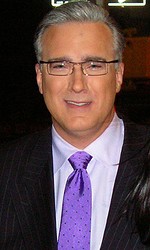Top 400 Admirable Quotes & Sayings - Page 7
Explore popular Admirable quotes.
Last updated on November 21, 2024.
It is not the willingness to kill on the part of our soldiers which most concerns me. That is an inherent part of war. It is our lack of respect for even the admirable characteristics of our enemy; for courage, for suffering, for death, for his willingness to die for his beliefs, for his companies and squadrons which go forth, one after another, to annihilation against our superior training and equipment.
When you get down to the bottom of it, only about half of what we remember really happened. We tend to modify things to make ourselves look better in our own eyes and in the eyes of others. Then, if what we did wasn't really very admirable, we tend to forget that it ever happened. A normal human being's grasp on reality is very tenuous at best. Our imaginary lives are usually much nicer.
It takes about a year to write an opera for me, but not a really a year of writing. I'm touring at the same time, and I'm playing, sometimes doing smaller projects.[The opera] Akhnaten fits in with Gandhi and Einstein, so that forms a trilogy in a way.I picked people who were these kind of larger than life characters, who kind of changed the world they lived in by almost the force of their personality and their inventiveness. People that I think not only do I admire but I think they're admirable people.
The problem isn't who is in charge. It's what is in charge. The problem is that people are encouraged to function as machines. Or, actually, as mechanisms. Human emotion and sympathy are unprofessional. They are inappropriate to the exercise of reason. Everything which makes people good - makes them human - is ruled out. The system doesn't care about people, but we treat it as if it were one of us, as if it were the sum of our goods and not the product of our least admirable compromises.
Still, even the most admirable of atheists is nothing more than a moral parasite, living his life based on borrowed ethics. This is why, when pressed, the atheist will often attempt to hide his lack of conviction in his own beliefs behind some poorly formulated utilitarianism, or argue that he acts out of altruistic self-interest. But this is only post-facto rationalization, not reason or rational behavior.
The Cross is not simply a lovely example of sacrificial love. Throwing your life away needlessly is not admirable — it is wrong. Jesus’ death was only a good example if it was more than an example, if it was something absolutely necessary to rescue us. And it was. Why did Jesus have to die in order to forgive us? There was a debt to be paid — God himself paid it. There was a penalty to be born — God himself bore it. Forgiveness is always a form of costly suffering.
O admirable Mother of God! How many sins have I committed for which thou hast obtained pardon for me, and how many others would I have committed if thou hadst not preserved me? How often have I seen myself on the brink of Hell in obvious danger of falling into it but for thy most benign hand which saved me? How often would the Roaring Lion of Hell have devoured and swallowed up my soul had not the charity of thy heart opposed him? Alas! Without thee, my dearest and my all-good Mother, where should I be today? I should be in the fiery furnace of Hell from which I would never emerge!
This goodly frame, the earth, seems to me a sterile promontory, this most excellent canopy, the air, look you, this brave o'erhanging firmament, this majestical roof fretted with golden fire, why, it appears no other thing to me than a foul and pestilent congregation of vapours. What a piece of work is a man! how noble in reason! how infinite in faculty! in form and moving how express and admirable! in action how like an angel! in apprehension how like a god! the beauty of the world! the paragon of animals! And yet, to me, what is this quintessence of dust?
Simplicity is a pleasant thing in children, or at any age, but it is not necessarily admirable, nor is affectation altogether a thing of evil. To be normal, to be at home in the world, with a prospect of power, usefulness, or success, the person must have that imaginative insight into other minds that underlies tact and savoir-faire, morality and beneficence. This insight involves sophistication, some understanding and sharing of the clandestine impulses of human nature. A simplicity that is merely the lack of this insight indicates a sort of defect.
Suddenly Po shot into the courtyard from the north vestibule whooping. Katsa, seeing him, broke into a run and they tore at each other through the wash. Just before the moment of impact, Po shifted to one side, crouched, scooped Katsa up, and, with admirable precision, propelled them both sideways into the pool. ... Katsa and Po were trying to drown each other and, judging from their hoots of laughter, enjoying it immensely.
The stately heavens which glory doth array, are mirrors of God's admirable might; there, whence forth spreads the night, forth springs the day. He fix'd the fountains of this temporal light, where stately stars enstall'd, some stand, some stray, all sparks of his great power (though small) yet bright. By what none utter can, no, not conceive. All of his greatness, shadows may perceive.
It is one of the many merits of this admirable biography of Proust's mother that it invites one to return to the novel with perhaps a fuller understanding of Proust's heredity, hinterland, and upbringing. . . . This fascinating book is full of interesting social and cultural observation, of information about French Jewish life, the position of Jews in society and, of course, the Dreyfus case. But it is essentially a study of one of the most remarkable and fruitful of mother-son relationships. As such it is a book that every Proustian will want to read.
So where does Stan fit in this equation?... We are told to meditate on scripture, even the hald that details the consequences of evil, the consequent of Jericho and all. Not to pretend out God has somehow changed since the time of Christ. Obviously, Paul's idea of admirable and noble is quite different from ours. God forgives us, Bill. We have mocked His victory by whitewashing the enemy for the sake of our neighbirs approval." No Greater Love has any man.
There were no weapons of mass destruction in Iraq. But he still says so. There was no link between Saddam Hussein and al Qaida. But he still says so. And thus, gripping firmly these figments of his own imagination, Mr. Cheney lives on, in defiance, and spreads - around him and before him - darkness, like some contagion of fear. They are never wrong, and they never regret - admirable in a French torch singer, cataclysmic in an American leader.
It is hard to be with another's pain if we cannot be with our own. Since I was a child I have always felt a deep sense of responsibility to ease others' pain. But I have discovered that often, beneath this genuine and admirable desire, lies an inability to be with my own sorrow. Several years ago, watching a close friend suffer when a brain aneurysm took away her life as she knew it, I wrote in my journal, "I won't ask much. But if you would just let me save your life, perhaps it will not hurt so much to know I cannot save my own.
I didn't get a chance to meet Glen [Beck] for this movie. I did meet him a few years ago, coincidentally, before any of this happened. But I've been familiar with his work, so I felt I wanted to get it right. I wanted to honor him. I respect him and I think the way he does his job is admirable. Yeah, there was an added incentive. I wouldn't call it pressure, but incentive perhaps.
I come, O Lord, unto Thy sanctuary to see the life and food of my soul. As I hope in Thee, O Lord, inspire me with that confidence which brings me to Thy holy mountain. Permit me, Divine Jesus, to come closer to Thee, that my whole soul may do homage to the greatness of Thy majesty; that my heart, with its tenderest affections, may acknowledge Thine infinite love; that my memory may dwell on the admirable mysteries here renewed every day, and that the sacrifice of my whole being may accompany Thine.
Do not ask your children to strive for extraordinary lives. Such striving may seem admirable, but it is the way of foolishness. Help them instead to find the wonder and the marvel of an ordinary life. Show them the joy of tasting tomatoes, apples and pears. Show them how to cry when pets and people die. Show them the infinite pleasure in the touch of a hand. And make the ordinary come alive for them. The extraordinary will take care of itself.
Doubt is not a pleasant condition, but certainty is an absurd one. What is most repellent in the System of Nature - after the recipe for making eels from flour - is the audacity with which it decides that there is no God, without even having tried the impossibility. If God did not exist, he would have to be invented." But all nature cries aloud that he does exist: that there is a supreme intelligence, an immense power, an admirable order, and everything teaches us our own dependence on it.
Individuals who have been wronged by unlawful racial discrimination should be made whole; but under our Constitution there can be no such thing as either a creditor or a debtor race. That concept is alien to the Constitution's focus upon the individual. ...To pursue the concept of racial entitlement - even for the most admirable and benign of purposes - is to reinforce and preserve for future mischief the way of thinking that produced race slavery, race privilege and race hatred. In the eyes of government, we are just one race here. It is American.
This is the excellent foppery of the world, that, when we are sick in fortune,--often the surfeit of our own behavior,--we make guilty of our disasters the sun, the moon, and the stars: as if we were villains by necessity; fools by heavenly compulsion; knaves, thieves, and treachers, by spherical predominance; drunkards, liars, and adulterers, by an enforced obedience of planetary influence; and all that we are evil in, by a divine thrusting on: an admirable evasion of whoremaster man, to lay his goatish disposition to the charge of a star.
You know, Qhuinn's an interesting character." Saxton reached out with an elegant hand and picked up his port. "He's one of my favorite cousins, actually. His nonconformity is admirable and he's survived things that would crush a lesser male. Don't know that being in love with him would be easy, however." Blay didn't go near that one. "So do you come here often?" Saxton laughed, his pale eyes glinting, "Not for discussion, huh.
The third class consists of men to whom nothing seems great but reason. If force interests them, it is not in its exertion, but in that it has a reason and a law. For men of the first class, nature is a picture; for men of the second class, it is an opportunity; for men of the third class, it is a cosmos, so admirable, that to penetrate to its ways seems to them the only thing that makes life worth living. These are the men whom we see possessed by a passion to learn.
An excellent plumber is infinitely more admirable than an incompetent philosopher. The society which scorns excellence in plumbing because plumbing is a humble activity and tolerates shoddiness in philosophy because it is an exalted activity will have neither good plumbing nor good philosophy. Neither its pipes nor its theories will hold water.
Is it stupidity or is it moral cowardice which leads men to continue professing a creed that makes self-sacrifice a cardinal principle, while they urge the sacrificing of others, even to the death, when they trespass against us? Is it blindness, or is it an insance inconsistency, which makes them regard as most admirable the bearing of evil for the benefit of others, while they lavish admiration on those who, out of revenge, inflict great evils in return for small ones suffered? Surely our barbarian code of right needs revision, and our barbarian standard of honour should be somewhat changed.
Seen from a lower point of view, the Constitution, with all its faults, is very good; the law and the courts are very respectable;even this State and this American government are, in many respects, very admirable, and rare things, to be thankful for, such as a great many have described them; but seen from a point of view a little higher, they are what I have described them; seen from a higher still, and the highest, who shall say what they are, or that they are worth looking at or thinking of at all?
The man who is bigger than his job keeps cool. He does not lose his head, he refuses to become rattled, to fly off in a temper. The man who would control others must be able to control himself. There is something admirable, something inspiring, something soul-stirring about a man who displays coolness and courage under extremely trying circumstances. A good temper is not only a business asset. It is the secret of health. The longer you live, the more you will learn that a disordered temper breeds a disordered body.
One of the things particularly admirable in the public utterances of President Lincoln is a certain tone of familiar dignity, which, while it is perhaps the most difficult attainment of mere style, is also no doubtful indication of personal character. There must be something essentially noble in an elective ruler who can descend to the level of confidential ease without forfeiting respect, something very manly in one who can break through the etiquette of his conventional rank and trust himself to the reason and intelligence of those who have elected him.
But there are people who take salt with their coffee. They say it gives a tang, a savour, which is peculiar and fascinating. In the same way there are certain places, surrounded by a halo of romance, to which the inevitable disillusionment you experience on seeing them gives a singular spice. You had expected something wholly beautiful and you get an impression which is infinitely more complicated than any that beauty can give you. It is the weakness in the character of a great man which may make him less admirable but certainly more interesting. Nothing had prepared me for Honolulu.
The gap between ideals and actualities, between dreams and achievements, the gap that can spur strong men to increased exertions, but can break the spirit of others -- this gap is the most conspicuous, continuous land mark in American history. It is conspicuous and continuous not because Americans achieve little, but because they dream grandly. The gap is a standing reproach to Americans; but it marks them off as a special and singularly admirable community among the world's peoples.
I can honestly say that there are many forms of atheism that I find far more admirable than many forms of Christianity or of religion in general. But atheism that consists entirely in vacuous arguments afloat on oceans of historical ignorance, made turbulent by storms of strident self-righteousness, is as contemptible as any other form of dreary fundamentalism. And it is sometimes difficult, frankly, to be perfectly generous in one’s response to the sort of invective currently fashionable among the devoutly undevout, or to the sort of historical misrepresentations it typically involves.
You could conceive spirituality as the study of the immeasurable, of the qualitative. But that's very different from the way we typically use the word. A spiritual person, in the popular conception, is somebody who's kind of aloof from the world, introspective, meditating, communing with non-material beings. That's the spiritual realm, and we elevate it above the material realm. What's more worthy, what's more admirable? Who's the one who has done this hard work on the self, and has done a lot of "practice"? That's the spiritual person.
Blake expressed some doubt as to whether God had made the tiger. But the tiger is in many ways an admirable animal. We have now to ask whether God made the tapeworm. And it is questionable whether an affirmative answer fits in either with what we know about the process of evolution or what many of us believe about the moral perfection of God.
Maybe it’s not, in the end, the virtues of others that so wrenches our hearts as it is the sense of almost unbearably poignant recognition when we see them at their most base, in their sorrow and gluttony and foolishness. You need the virtues, too—some sort of virtues—but we don’t care about Emma Bovary or Anna Karenina or Raskolnikov because they’re good. We care about them because they’re not admirable, because they’re us, and because great writers have forgiven them for it.
Nature never makes excellent things, for mean or no uses: and it is hardly to be conceived, that our infinitely wise Creator, should make so admirable a Faculty, as the power of Thinking, that Faculty which comes nearest the Excellency of his own incomprehensible Being, to be so idlely and uselesly employ'd, at least 1/4 part of its time here, as to think constantly, without remembering any of those Thoughts, without doing any good to it self or others, or being anyway useful to any other part of Creation.
I think with the advent of Reagan, and subsequently, both parties, there's been a strong move towards the advantage given to the richer people, in taxation and grants and supplements and things of that kind. Primarily exacerbated more recently by the Supreme Court's stupid ruling on Citizens United, and now there's a massive flood of money into the political system that I think has subverted the essence of a moral and ethical standard that used to permeate American democracy. Now it's not an admirable process. I think we've gone backwards.
Setting aside the vast herd which shows no definable character at all, it seems to me that the minority distinguished by what is commonly regarded as an excess of sin is very much more admirable than the minority distinguished by an excess of virtue. My experience of the world has taught me that the average wine-bibbler is a far better fellow than the average prohibitionist, and that the average rogue is better company than the average poor drudge, and that the worst white-slave trader of my acquaintance is a decenter man than the best vice crusader.
Poets seem to write more easily about love than prose writers. For a start, they own that flexible ‘I’…. Then again, poets seem able to turn bad love – selfish, shitty love – into good love poetry. Prose writers lack this power of admirable, dishonest transformation. We can only turn bad love into prose about bad love. So we are envious (and slightly distrustful) when poets talk to us of love.
Suppose one who had always continued blind be told by his guide that after he has advanced so many steps he shall come to the brink of a precipice, or be stopped by a wall; must not this to him seem very admirable and surprising? He cannot conceive how it is possible for mortals to frame such predictions as these, which to him would seem as strange and unaccountable as prophesy doth to others. Even they who are blessed with the visive faculty may (though familiarity make it less observed) find therein sufficient cause of admiration.






































